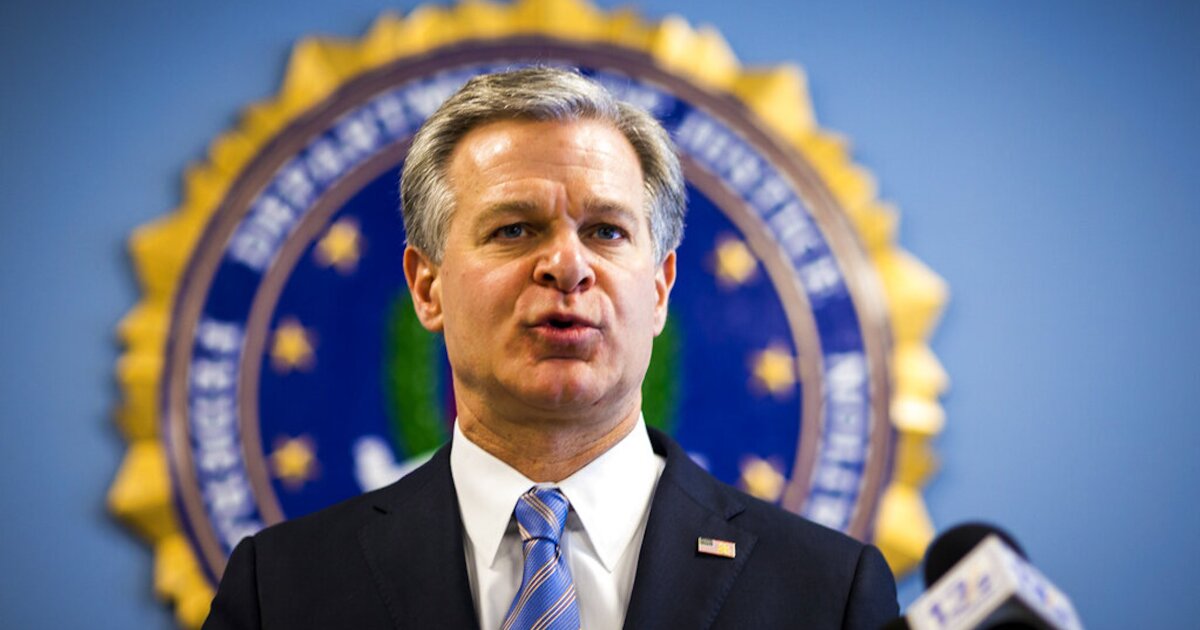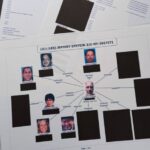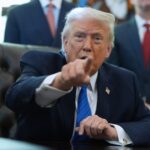

Democrats and commentators reacted dismissively to the conclusion this week of a long-awaited investigation into the origins of the Russian collusion inquiry, with some critics of special counsel John Durham citing a 2019 inquiry to claim the matter had already been settled.
The Justice Department’s inspector general, Michael Horowitz, did indeed examine FBI conduct in the Russia investigation during the Trump administration. Horowitz’s findings were highly critical of the FBI and came with a list of recommendations for sweeping changes to the bureau, many of which its leaders adopted.
FIVE KEY TAKEAWAYS FROM DURHAM’S FINDINGS IN TRUMP-RUSSIA INVESTIGATION
But the media, and even people involved in the Russia investigation itself, have recast the 2019 inspector general report as an exoneration of the FBI in light of the far more aggressive allegations leveled at the bureau by Durham.
Andrew McCabe, then the deputy director of the FBI and now a CNN analyst, pointed to the inspector general report when arguing on Tuesday that Durham’s findings are “an anomaly.”
He claimed the inspector general agreed that former President Donald Trump’s suspected Russian ties were “something that had to be investigated.”
“That’s the opening of the case that, as I said, the IG and other investigative entities approved of that action in hindsight,” McCabe said on CNN.
Other critics — including Andrew Weissmann, a former top Justice Department official who worked in former special counsel Robert Mueller’s office during the Russia investigation — cited the inspector general report extensively to defend the FBI from Durham’s claim of widespread political bias.
But Horowitz’s report in 2019 found the FBI acted improperly on numerous occasions, on multiple levels, and potentially as a result of political bias while conducting the Russia investigation.
Far from providing the FBI’s defenders with cover, the inspector general report uncovered extensive misconduct and even illegal activity.
“They continue to say Horowitz looked at this and said he didn’t see any evidence of bias,” Andrew McCarthy, a former U.S. attorney, told the Washington Examiner. “That’s almost the opposite of what he says.”
The Justice Department inspector general in an earlier report had uncovered the now-infamous text messages between two high-ranking FBI officials who discussed their eagerness to stop Trump from becoming president at the time both were involved in the Russia investigation.
While the 2019 report “did not find documentary or testimonial evidence” of further political bias in the opening of the Russia investigation, neither did it conclude that bias played no role in the inquiry, as some FBI defenders are now claiming in light of the Durham report.
The inspector general’s team “did not receive satisfactory explanations for the errors or problems we identified,” Horowitz wrote, and IG investigators believed that the FBI agents on the case “may have improperly substituted their own judgments in place of the judgment” of intelligence officials or the courts.
The FBI made dozens of changes to its procedures after the 2019 Horowitz report, most significantly to the rules surrounding surveillance warrants.
Horowitz’s inquiry found “significant inaccuracies and omissions” in the FBI’s application for a surveillance warrant aimed at a former Trump associate, including “basic, fundamental, and serious errors” that agents committed when asking a judge to approve multiple warrants. Even when evidence collected from surveillance of that aide actually weakened their existing case for justifying the spying, the agents persisted, Horowitz found.
And Horowitz uncovered evidence that an FBI lawyer intentionally doctored an email to cover up information that would have hurt the case for extending the surveillance warrant, a crime for which Durham secured a guilty plea in 2020.
McCarthy said the FBI’s reaction to those findings should highlight how damaging that report was to the bureau at the time.
“If they removed everybody who was involved in this and they majorly changed their procedures, how can anyone say that the Horowitz report covered them in glory?” McCarthy said.
Beyond the lack of hard evidence of bias in the Horowitz report, Durham’s critics have also focused heavily on the IG’s finding that the FBI had a legitimate basis to open the Russia investigation in the first place.
On this front, Durham explicitly disagreed: He revealed this week evidence that the FBI opened the Russia investigation based on “raw, unanalyzed, and uncorroborated intelligence” in what was “a noticeable departure from how it approached prior matters involving possible attempted foreign election interference plans aimed at the [Hillary] Clinton campaign.”
McCarthy said Horowitz, in his investigation, never sought to answer the same questions as Durham.
“What [Horowitz] very clearly meant … is that it was not a violation of their written standards to open the investigation,” he said. “That’s because their standards for opening even a low-level investigation don’t require much more than a hunch.”
In fact, the inspector general made no effort to look into whether the FBI had any facts to back up the allegations that sparked the Russia investigation, noting in his report that “our review did not independently seek to determine whether corroboration existed for the Steele election reporting.”
And Horowitz carefully noted that the dossier provided by Christopher Steele, an operative paid by Clinton’s campaign, and other pieces of information gave the FBI a basis to open the investigation “if true” given “the low threshold established by the Department [of Justice] and the FBI.”
In other words, Horowitz sought only to determine whether the FBI violated the letter of its own loose rules; Durham sought to examine whether the FBI acted ethically and prudently and found the bureau lacking.
Durham also had the benefit of more evidence from which to draw conclusions, said Jonathan Turley, a constitutional law professor at George Washington University.
“Durham chased these sources to their roots. Horowitz was largely operating from Justice Department records,” Turley told the Washington Examiner. “Durham also had a far greater scope of witnesses and documents with the purview of his investigation.”
“It is the difference between calling balls and strikes at the plate as opposed to investigating the fixing of the whole game,” Turley added.
Durham said this week that the special counsel’s office drew from materials compiled for a 2020 Senate Intelligence Committee report and an internal report written by the FBI’s Inspection Division in 2021, both of which came together after Horowitz concluded his investigation.
The special counsel cast a wide net for evidence, requesting documents not just from the Justice Department but also from private companies, political campaigns, and even internet service providers.
Ultimately, Durham’s office conducted more than 480 interviews, reviewed more than 6 million pages of records, issued more than 190 subpoenas, and executed seven search warrants, according to its report.
Horowitz said his office conducted more than 170 interviews for his 2019 investigation and had access to few materials from other government agencies outside of what was already in the FBI’s possession.
The inspector general also made note of at least two key witnesses who refused to give interviews before the 2019 report; the IG does not have subpoena power, unlike Durham.
CLICK HERE TO READ MORE FROM THE WASHINGTON EXAMINER
Ultimately, McCarthy said, both Horowitz and Durham paint a picture of an FBI operating outside the rules in pursuit of Trump despite the media pushing a narrative of the two watchdogs being at odds.
“Is Horowitz slightly easier on them than Durham is? Yeah,” he said. “But Durham picks up the story where Horowitz left it off.”





